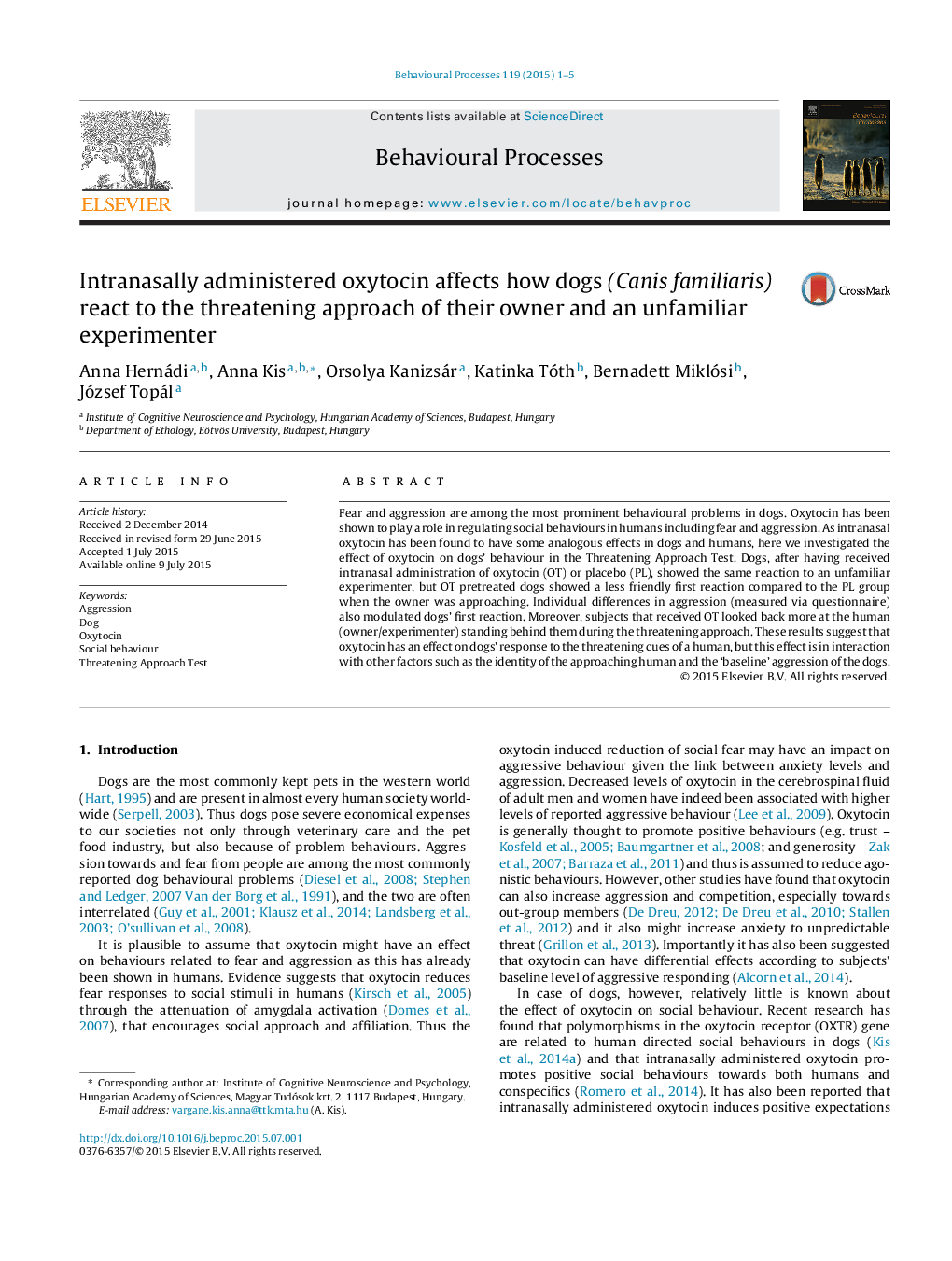| Article ID | Journal | Published Year | Pages | File Type |
|---|---|---|---|---|
| 2426510 | Behavioural Processes | 2015 | 5 Pages |
•Dogsʼ behaviour towards a threatening human is influenced by intranasal oxytocin.•The familiarity of the threatening human (owner/experimenter) has a modulating role.•Owner-rated aggression of the dogs affects their reaction to a threatening human.
Fear and aggression are among the most prominent behavioural problems in dogs. Oxytocin has been shown to play a role in regulating social behaviours in humans including fear and aggression. As intranasal oxytocin has been found to have some analogous effects in dogs and humans, here we investigated the effect of oxytocin on dogsʼ behaviour in the Threatening Approach Test. Dogs, after having received intranasal administration of oxytocin (OT) or placebo (PL), showed the same reaction to an unfamiliar experimenter, but OT pretreated dogs showed a less friendly first reaction compared to the PL group when the owner was approaching. Individual differences in aggression (measured via questionnaire) also modulated dogs’ first reaction. Moreover, subjects that received OT looked back more at the human (owner/experimenter) standing behind them during the threatening approach. These results suggest that oxytocin has an effect on dogsʼ response to the threatening cues of a human, but this effect is in interaction with other factors such as the identity of the approaching human and the ‘baseline’ aggression of the dogs.
